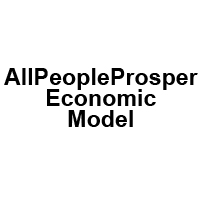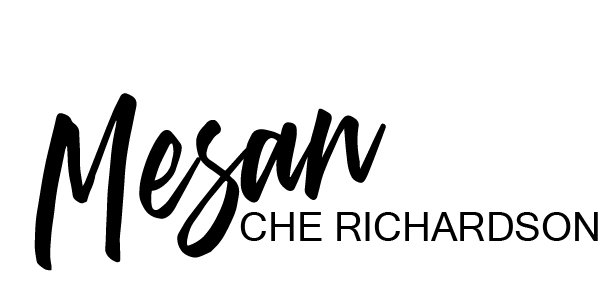The Issues
Economic Inequality | Climate Change | Mass Poverty & Starvation | Human Rights | Infectious & Chronic Diseases | Education & Learning | Food & Water Insecurity | Human Trafficking
Economic Inequality is the Primary Global Issue
According to the World Inequality Report 2018, inequality within world regions varies greatly. In 2016, the share of total national income accounted for by just that nation’s top 10% earners (top 10% income share) was 37% in Europe, 41% in China, 46% in Russia, 47% in US-Canada, and around 55% in sub-Saharan Africa, Brazil, and India. In the Middle East, the world’s most unequal region according to our estimates, the top 10% capture 61% of national income [37] - earners per nation, live in varying conditions of poverty, paycheck to paycheck, existing each day just to survive.
Solution to Economic Inequality
 1
1Step 1
 2
2Step 2
 3
3Step 3
Global Economic Inequality
US Income Inequality
Households in the lowest quintile had incomes of $24,638 or less in 2017. Households in the second quintile had incomes from $24,639 to $47,110, those in the third quintile had incomes from $47,111 to $77,552, and those in the fourth quintile had incomes from $77,553 to $126,855. Households in the highest quintile had incomes of $126,856 or more. The top 5 percent of households in the income distribution had incomes of $237,035 or more. Source: US Census BureauMillion People
International Inequality
People living on less than $1.90-a-day, Extreme Poverty, International Poverty Line, World Bank's Upper Middle-Income and Lower Middle-Income country poverty lines correspond to $5.50 and $3.20 per person per day, Middle class defined as earning between $13 and $70-a-day (2011 PPP). [Source: The World Bank]Billion People
Corporate Leaders Discuss Economic Inequality
Source: YahooFinanceInvestors warning of economic emergency due to income inequality
MSNBCHumanities Top Threats
H U M A ND R E A M is the robust global strategy needed to substantively address humanities top threats.
Mass Deaths
In 2015, more than 16,000 children under age five died every day. Almost all of these children's lives could be saved if they had access to simple and affordable interventions such as exclusive breastfeeding, inexpensive vaccines and medication, clean water and sanitation.
Children are at a greater risk of dying before age five if they are born in poor households, rural areas, or to mothers denied basic education.
Climate Change
Over the last century the burning of fossil fuels like coal and oil has increased the concentration of atmospheric carbon dioxide (CO2).
This happens because the coal or oil burning process combines carbon with oxygen in the air to make CO2.
Adults Dying
Chronic obstructive pulmonary disease claimed 3.0 million lives in 2016, while lung cancer (along with trachea and bronchus cancers) caused 1.7 million deaths.
Diabetes killed 1.6 million people in 2016, up from less than 1 million in 2000. Deaths due to dementias more than doubled between 2000 and 2016, making it the 5th leading cause of global deaths in 2016 compared to 14th in 2000.
Mass Poverty & Starvation
> People living on less than $1.90-a-day is Extreme Poverty International Poverty Line, World Bank's
> Upper Middle-Income and Lower Middle-Income country poverty lines correspond to $5.50 and $3.20 per person per day
> Middle class defined as earning between $13 and $70-a-day (2011 PPP).
Human Rights
Human rights are rights inherent to all human beings, regardless of race, sex, nationality, ethnicity, language, religion, or any other status.
Human rights include the right to life and liberty, freedom from slavery and torture, freedom of opinion and expression, the right to work and education, and many more.
Everyone is entitled to these rights, without discrimination.
Poor Health, Malnutrition and Disease
Lower respiratory infections remained the most deadly communicable disease, causing 3.0 million deaths worldwide in 2016.
The death rate from diarrhoeal diseases decreased by almost 1 million between 2000 and 2016, but still caused 1.4 million deaths in 2016.
Human Trafficking
Children make up almost 1/3 of all human trafficking victims worldwide.
At any given time in 2016, an estimated 40.3 million people are in modern slavery, including 24.9 million in forced labour and 15.4 million in forced marriage.
Food & Water Insecurities
> 2 Billion People is the number of people worldwide that use a drinking-water source contaminated with feces.
> Contaminated water can transmit diseases such diarrhoea, cholera, dysentery, typhoid, and polio.
> Contaminated drinking water is estimated to cause 485,000 diarrhoeal deaths each year.
Education & Learning
750 Million Adults - two thirds of them women – remained illiterate in 2016.
Half of the global illiterate population lives in South Asia, and a quarter live in sub-Saharan Africa.







